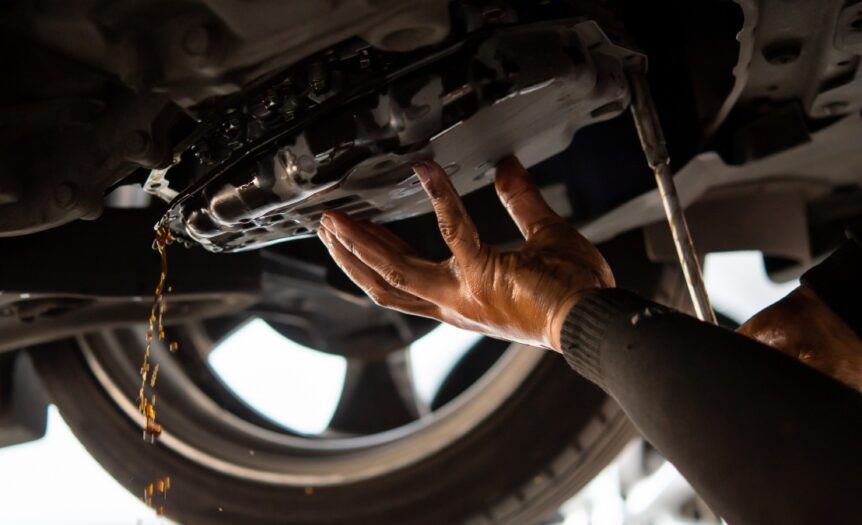When you own a car, your responsibilities go beyond driving safely. You must also have a firm understanding of the essentials that keep your vehicle running smoothly. One of the most critical aspects of car maintenance is managing its fluids so that it operates efficiently and safely. Here are five fluids in your vehicle that you should know to keep it in top shape.
Your Transmission Fluid
Transmission fluid isn’t just a mere liquid; it’s critical to providing lubrication and preventing future damage. In addition, those who own four-wheel and all-wheel drive vehicles should be aware that the transmission fluid is an essential transfer case part you must replace regularly.
This fluid prevents wear and tear while helping send power to your vehicle. Make sure to keep an eye on this fluid while watching for any slipping, grinding, or delayed shifting as well.
Your Oil
People often refer to oil as “the lifeblood” of a vehicle because it lubricates the engine’s moving parts, reducing friction and preventing overheating. Therefore, it is essential to have it changed regularly and prevent it from becoming low or dirty. Failure to do so may result in serious engine damage.
Your Brake Fluid
Another fluid in your vehicle that you should know is the brake fluid, which plays a critical role in your braking system. It transmits the force created when you press the brake pedal into pressure, which stops the car.
But letting the fluid become low or get dirty can prevent your brakes from working. Check the brake fluid reservoir regularly. If the fluid appears dark or murky, it’s time for a replacement.
Your Windshield Wiper Fluid
While it might not seem as critical as the other fluids, windshield wiper fluid is essential for maintaining visibility during adverse weather conditions. This fluid helps clear dirt, grime, and water from your windshield, ensuring you have a clear view of the road. Don’t let this fluid get low, and check for any clogs in the spray nozzles.
Your Antifreeze
Antifreeze, also known as coolant, regulates your engine’s temperature and prevents it from overheating. It also protects your engine against freezing in cold weather.
Keeping your antifreeze at the correct levels and ensuring it’s free from contaminants can prevent costly repairs. Check the coolant level regularly and top it up to keep your engine running at optimal temperatures.
Now that you know the roles of these essential fluids, you can better maintain your vehicle’s performance and extend its lifespan. Regular checks and timely replacements will prevent unexpected breakdowns and ensure a smooth driving experience.










 Deering Estate
Deering Estate
 Massage Envy South Miami
Massage Envy South Miami
 Calla Blow Dry
Calla Blow Dry
 My Derma Clinic
My Derma Clinic
 Sushi Maki
Sushi Maki
 Sports Grill
Sports Grill
 The Healthy Kitchen
The Healthy Kitchen
 Golden Rule Seafood
Golden Rule Seafood
 Malanga Cuban Café
Malanga Cuban Café

 Kathleen Ballard
Kathleen Ballard
 Panter, Panter & Sampedro
Panter, Panter & Sampedro
 Vintage Liquors
Vintage Liquors
 The Dog from Ipanema
The Dog from Ipanema
 Rubinstein Family Chiropractic
Rubinstein Family Chiropractic
 Your Pet’s Best
Your Pet’s Best
 Indigo Republic
Indigo Republic




 ATR Luxury Homes
ATR Luxury Homes


 2112 Design Studio
2112 Design Studio
 Hamilton Fox & Company
Hamilton Fox & Company
 Creative Design Services
Creative Design Services
 Best Pest Professionals
Best Pest Professionals
 HD Tree Services
HD Tree Services
 Trinity Air Conditioning Company
Trinity Air Conditioning Company
 Cisca Construction & Development
Cisca Construction & Development
 Mosquito Joe
Mosquito Joe
 Cutler Bay Solar Solutions
Cutler Bay Solar Solutions


 Miami Royal Ballet & Dance
Miami Royal Ballet & Dance
 Christopher Columbus
Christopher Columbus
 Pineview Preschools
Pineview Preschools
 Westminster
Westminster
 Carrollton
Carrollton
 Lil’ Jungle
Lil’ Jungle
 Frost Science Museum
Frost Science Museum
 Palmer Trinity School
Palmer Trinity School
 South Florida Music
South Florida Music
 Pinecrest Orthodontics
Pinecrest Orthodontics
 Dr. Bob Pediatric Dentist
Dr. Bob Pediatric Dentist
 d.pediatrics
d.pediatrics
 South Miami Women’s Health
South Miami Women’s Health

 The Spot Barbershop
The Spot Barbershop
 My Derma Clinic
My Derma Clinic




 Miami Dance Project
Miami Dance Project

 Rubinstein Family Chiropractic
Rubinstein Family Chiropractic
 Indigo Republic
Indigo Republic

 Safes Universe
Safes Universe
 Vintage Liquors
Vintage Liquors
 Evenings Delight
Evenings Delight





 Atchana’s Homegrown Thai
Atchana’s Homegrown Thai
 Baptist Health South Florida
Baptist Health South Florida

 Laser Eye Center of Miami
Laser Eye Center of Miami
 Visiting Angels
Visiting Angels
 OpusCare of South Florida
OpusCare of South Florida

 Your Pet’s Best
Your Pet’s Best





 HD Tree Services
HD Tree Services
 Hamilton Fox & Company
Hamilton Fox & Company


 Creative Design Services
Creative Design Services